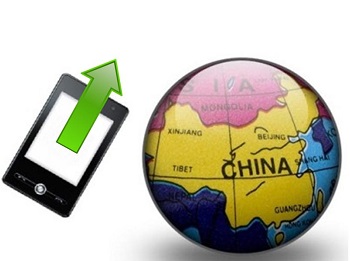The company has said that it would prefer to leave that country than to open its servers to authorities there.
BlackBerry Ltd. has announced that it will be placing its previous intentions to withdraw from its Pakistan operations on hold for the moment but that it will stand firm when it comes to maintaining the mobile security and privacy of its customers.
It continues to say that it will step out of its Pakistan operations if authorities there continue to demand access to its data.
The authorities in Pakistan have been demanding “unfettered” access to all of the customer data stored on the company’s BES servers. BlackBerry has been refusing to comply with these demands and had intended to close up its business there. While it has now said that it is delaying its withdrawal, it has added that it is not changing its position when it comes to the mobile security and personal and business privacy of its customers.
The Canadian smartphone maker has said that it will keep up its mobile security and Pakistan operations until December 30.
 This extension is the outcome of a compliance extension that the Pakistan Telecommunications Authority issued to its original order that was created in July. The company had already been saying that it would not breach the privacy of its customers on the BES servers and that it would leave Pakistan rather than comply with the demands being made by those authorities. It had been required to provide full access to the server content of its BlackBerry Enterprise Service by November 30, though this has been extended by another month.
This extension is the outcome of a compliance extension that the Pakistan Telecommunications Authority issued to its original order that was created in July. The company had already been saying that it would not breach the privacy of its customers on the BES servers and that it would leave Pakistan rather than comply with the demands being made by those authorities. It had been required to provide full access to the server content of its BlackBerry Enterprise Service by November 30, though this has been extended by another month.
While it did say that it would be willing to work with the authorities in Pakistan in order to ensure that public safety remains protected, but that the mobile security and privacy of its customers are at the highest priority to BlackBerry and that it won’t give in or even compromise when it comes to opening up all access to the authorities in the country.
Marty Beard, the BlackBerry operations chief, explained that the company does know that it is vitally important to cooperate with a government’s lawful information request when it comes to detecting criminal activity, but that it never has and never will simply open up complete access to BlackBerry’s service.
China is leading the way in mobile commerce growth
China is becoming more aggressive when it comes to mobile commerce. Until very recently, the country has relied heavily on cash rather than other forms of commerce. Many shoppers throughout the country had preferred paying in cash because they considered it more secure and convenient. As smartphone penetration grows, however, more consumers are beginning to use their mobile devices to shop for and purchase products. Large companies are beginning to take advantage of this, offering consumers new services that allow them to participate in mobile commerce.
WeChat is finding success by encouraging consumers to use its mobile payments service
WeChat is one of the companies looking to bring consumers into the mobile commerce field. WeChat is China’s largest messaging application and social network and the company launched an ambitious campaign last year to highlight its new payments service. During Chinese New Year last year, some 400 million people sent hongbao, traditional gifts containing money sent during the holiday, to their friends and families. This year, however, more than 1 billion digital hongbao were sent through WeChat’s service.
Consumers are finding it easier to shop for and purchase products with their mobile devices
 Consumers are becoming more comfortable with the concept of mobile commerce, using services like Alipay to purchase products that they are interested in. The companies and retailers behind these services are quickly expanding, looking to find every greater degrees of success in the mobile commerce market. Some of these companies, such as Alibaba, are also investing in foreign mobile commerce firms, hoping to establish a foothold in new markets and encourage the further growth of the mobile commerce field.
Consumers are becoming more comfortable with the concept of mobile commerce, using services like Alipay to purchase products that they are interested in. The companies and retailers behind these services are quickly expanding, looking to find every greater degrees of success in the mobile commerce market. Some of these companies, such as Alibaba, are also investing in foreign mobile commerce firms, hoping to establish a foothold in new markets and encourage the further growth of the mobile commerce field.
Young consumers are more likely to participate in mobile commerce
While many consumers still prefer to pay for products with cash, young consumers are embracing mobile commerce quite aggressively. These consumers have been exposed to technology from a young age, making them more comfortable with digital services. Older consumers are also embracing mobile commerce, but at a slower pace. As new services become available, more consumers are expected to become involved in mobile shopping.
 This extension is the outcome of a compliance extension that the Pakistan Telecommunications Authority issued to its original order that was created in July. The company had already been saying that it would not breach the privacy of its customers on the BES servers and that it would leave Pakistan rather than comply with the demands being made by those authorities. It had been required to provide full access to the server content of its BlackBerry Enterprise Service by November 30, though this has been extended by another month.
This extension is the outcome of a compliance extension that the Pakistan Telecommunications Authority issued to its original order that was created in July. The company had already been saying that it would not breach the privacy of its customers on the BES servers and that it would leave Pakistan rather than comply with the demands being made by those authorities. It had been required to provide full access to the server content of its BlackBerry Enterprise Service by November 30, though this has been extended by another month.
 Consumers are becoming more comfortable with the concept of mobile commerce, using services like Alipay to purchase products that they are interested in. The companies and retailers behind these services are quickly expanding, looking to find every greater degrees of success in the mobile commerce market. Some of these companies, such as Alibaba, are also investing in foreign mobile commerce firms, hoping to establish a foothold in new markets and encourage the further growth of the
Consumers are becoming more comfortable with the concept of mobile commerce, using services like Alipay to purchase products that they are interested in. The companies and retailers behind these services are quickly expanding, looking to find every greater degrees of success in the mobile commerce market. Some of these companies, such as Alibaba, are also investing in foreign mobile commerce firms, hoping to establish a foothold in new markets and encourage the further growth of the 